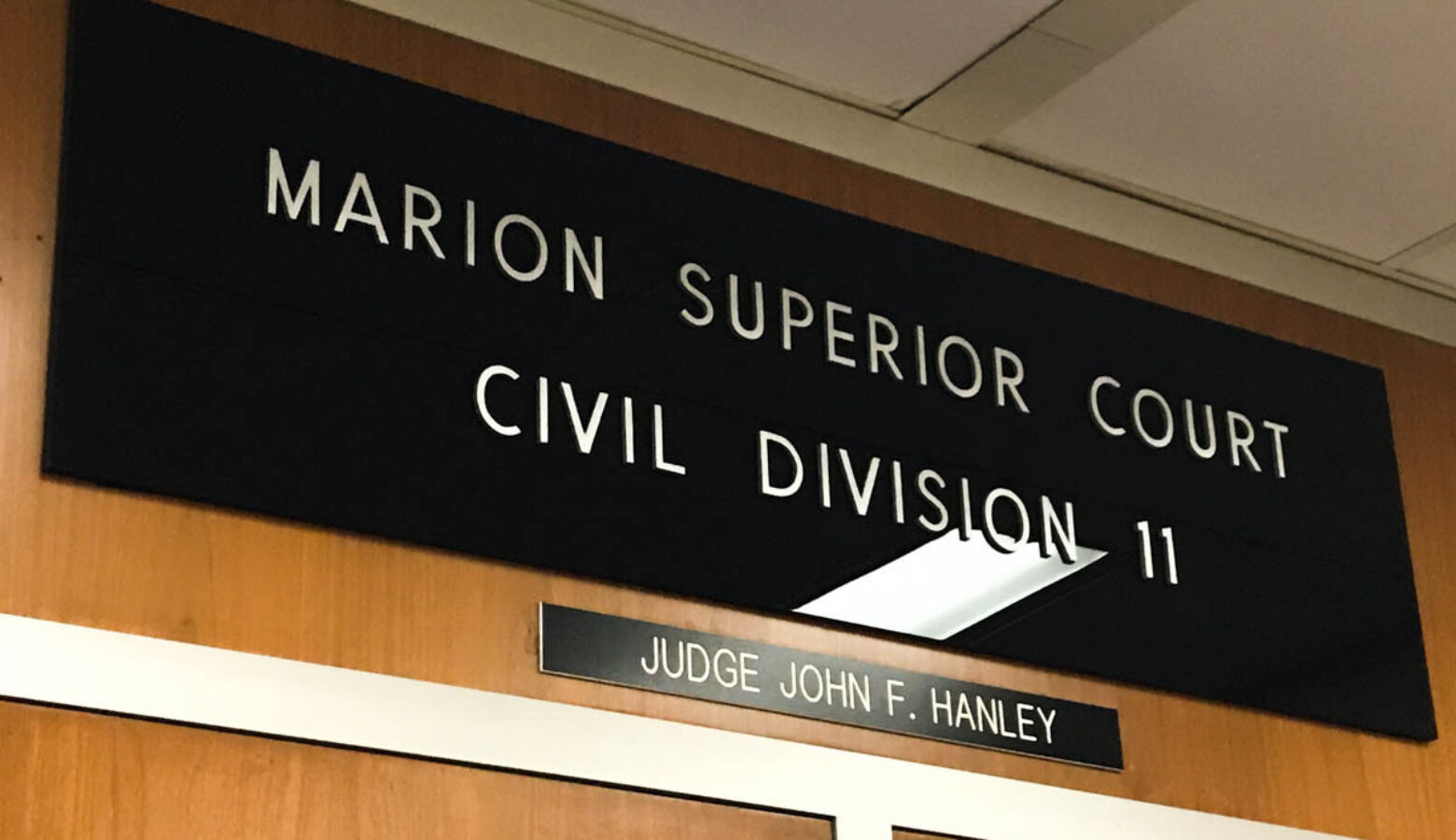Arguments on terminated pregnancy report lawsuit dismissal to be heard Friday

An anti-abortion group is suing the Indiana Department of Health over its decision to stop sharing individual terminated pregnancy reports which the group says violates Indiana’s public records law. The state argues the reports fit the definition of medical records, which are exempt.
Oral arguments on the state’s motion to dismiss are Friday in Marion County.
Voices for Life’s lawsuit filed in May said IDOH “routinely supplied” the individual reports on request with “potential patient identifying information” redacted and filed to regain access.
IDOH raised concerns last year about releasing the individual reports — which include data about the patient and procedure. With fewer patients receiving abortion care following the near-total abortion ban, the agency said the increased reporting requirements added to the forms in 2022 could make it easier to identify patients.
The Access to Public Records Act has an exception for medical records, which is not defined within the act. However, Indiana’s public access counselor said in an informal opinion the reports should be treated “with the same confidentiality considerations as any other patient medical record” because it is created as an “immediate consequence of a medical service.”
IDOH’s motion to dismiss echoes this argument, saying the reports fit the definition of a “medical record” in Indiana code. The definition used throughout state law describes medical records as “written or printed information possessed by a provider concerning any diagnosis, treatment or prognosis of the patient.”
The motion to dismiss said the terminated pregnancy reports are required by Indiana statute to meet those elements. Among more than two dozen reporting requirements, the reports have to include the diagnosis code for the fetus and pregnant person if the abortion is performed prior to 20 weeks and specific information about medicine for non-surgical abortions.
In the motion to dismiss, IDOH said by applying this “straightforward definition,” it properly withheld the reports under the medical record exception in APRA.
“This is patient specific medical information that is used for the diagnosis and treatment of the individual patient,” it said.
Join the conversation and sign up for the Indiana Two-Way. Text “Indiana” to 765-275-1120. Your comments and questions in response to our weekly text help us find the answers you need on statewide issues.
Before this lawsuit was filed, Indiana Attorney General Todd Rokita held a press conference in April claiming the reports should be released in their entirety for the sake of enforcing state law. Voices for Life also pointed to enforcement as the reason it wants access to the reports.
Rokita, who as attorney general represents IDOH and the public access counselor, accused them of collusion.
In July, an Indianapolis lawyer filed another complaint against Rokita with the state’s attorney disciplinary commission. The complaint alleges Rokita violated multiple rules governing attorney conduct, including a rule prohibiting lawyers from giving legal evaluations that could “materially and adversely” affect their clients without their clients’ consent.
Two medical providers intervened in the case agreeing the reports should not be shared because it violates patient privacy and creates a “conflict of legal duties” for providers.
The motion to intervene highlighted last year’s state medical board decision against one of the providers on the motion, Dr. Caitlin Bernard, which determined even partial disclosure of information violated privacy protections. The public access counselor also highlighted that decision in his informal opinion.
Bernard received a letter of reprimand and a fine in 2023 over a patient privacy complaint Rokita filed to the Indiana Medical Licensing Board. It was related abortion care she provided shortly after Ohio’s six-week ban took effect. Bernard told an Indianapolis Star reporter about providing care to a 10-year-old Ohio rape victim. The Medical Licensing Board decided that was enough information to violate federal and state confidentiality laws.
At the time, a spokesperson for the attorney general’s office declared victory for patient privacy.
The providers also said they have an interest in preventing Rokita’s interpretation of the statute from becoming law.
The oral arguments for the motion to dismiss will be heard Friday morning.
Abigail is our health reporter. Contact them at [email protected].

